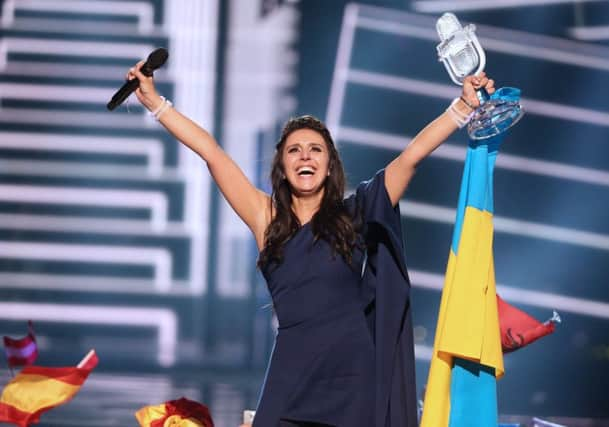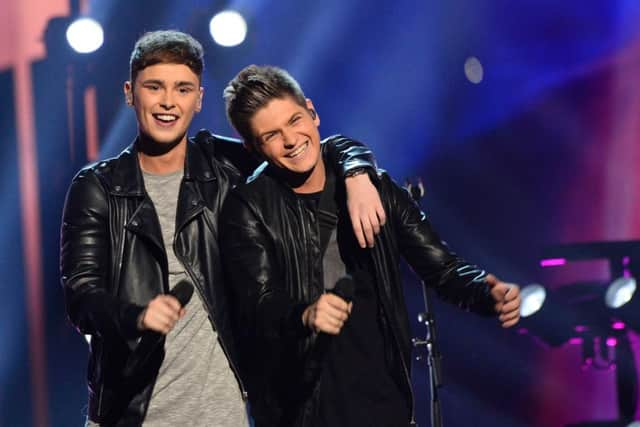Five things Eurovision 2016 told us about EU politics


The annual televised song contest commands millions of viewers despite the quality of its entries being regularly mocked by critics and the public alike.
But politics is often as important as music in the world of Eurovision. Individual nations’ voting preferences have long displayed favouritism to near-neighbours and scepticism to larger states.
Advertisement
Hide AdAdvertisement
Hide AdIt was revealed last week that Greece has given an average of 11.33 points to Cyprus annually. On Saturday, it handed the island nation 12 points.


This year’s contest was especially politically-charged. Swedish hosts Petra Mede and Mans Zelmerlow welcomed the audience with a reminder the competition was founded in 1954 after Europe had been ravaged by war - which many commentators interpreted as a pro-EU statement.
Former Daily Mirror editor Piers Morgan was among the many social media users who linked the contest to next month’s referendum, tweeting: “This show alone is enough to make me join Brexit.”
But what else links Eurovision with the EU referendum?
Russian foreign policy is a concern for many


Ukraine’s Susana Jamaladinova won the 2016 competition with her politically charged song, 1944.
It references the forced deportation of hundreds of thousands of the Crimean Tatars from the peninsula during the Second World War, and is widely viewed as a response to Russia’s annexation of Crimea in 2014.
The song opens with the line: “When strangers are coming, they come to your house, they kill you and say ‘we’re not guilty’.”
Both camps in the UK referendum debate regularly cite Russia and its assertive foreign policy when making respective claims regarding national security.
Advertisement
Hide AdAdvertisement
Hide AdBut the policies of Vladimir Putin remain a concern across the continent, not just in the UK.
The UK is as unpopular as ever in Europe
Recent UK Eurovision entries have not fared well.
Joe and Jake, who performed You’re Not Alone, finished 24th out of 26 entries on Saturday.
The 2015 entrant, Still in Love with You by Electric Velvet, finished in the same position.
It is open to debate whether such lowly rankings are a reflection on the poor quality of UK entries, or attitudes in general to the UK.
Complex voting systems are not the preserve of the EU
The Leave campaign has frequently criticised the perceived bureaucracy involved in EU decision-making.
But the European Parliament is a model of transparency compared with the new voting system employed by Eurovision.
The system, which was used for the first time on Saturday, does not reveal to viewers which country gave the highest points to another.
Advertisement
Hide AdAdvertisement
Hide AdIt is no longer as easy to spot political voting blocs - such as the Balkan nations - as in previous years.
English is becoming the official language of pan-European institutions
The UK’s present and future influence on Europe is a central argument in the referendum debate.
While the Remain camp insists British voices are best heard within the EU, Brexiters argue the opposite.
What is already clear is the dominant influence of UK and US pop music on Eurovision entries.
From Adele-style power ballads to synthpop that owes a debt to Rihanna, the days of kitsch folk numbers are largely over, reflecting the increasing number of Europeans who speak English as a second language.
A total of 21 of the 26 Eurovision entries were performed entirely in English, with the rest mixing it with their own language. Austrian entry Zoe was the only exception, who chose to sing in French.
The US is taking an increasing interest in European affairs
Advertisement
Hide AdAdvertisement
Hide AdPresident Obama’s intervention in favour of the UK retaining its EU membership is perhaps the biggest talking point of the referendum campaign so far.
But the US appears to be taking more of an interest in European affairs in general this year.
Saturday was the first time American viewers could watch Eurovision on a domestic station, courtesy of the extended basic cable channel Logo.
The contest was for a time the top trending topic on Twitter in the US, with more than five million tweets.
